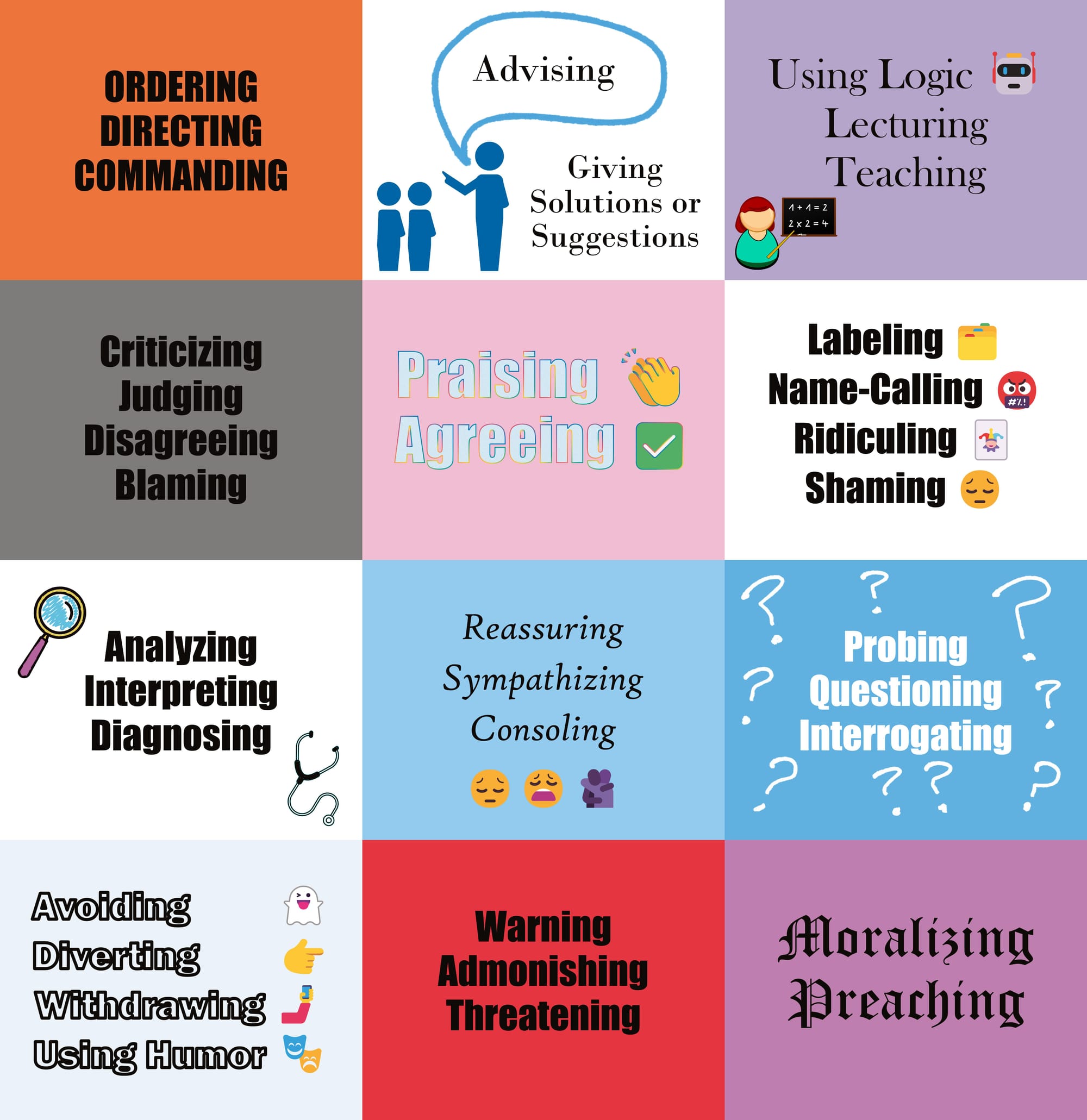One of the first concepts we learn is P.E.T. is about the existence of Roadblockers. It's kind of a rough process, because a Roadblocker is pretty much any way you've ever been spoken to when you have a problem, and they are also the most reflexive responses we tend to use when someone we know has a problem.

We call them Roadblockers because, when there's a problem present, they prevent the clear flow of communication (and information) from one person to another. They also usually prevent the person with the problem from feeling helped or prevent a problem that involves multiple people from being clearly resolved.
P.E.T. is about learning to communicate and to problem-solve in ways that support a healthy flow of communication and that strengthen relationships. It's a gradual process that's never meant to be perfect, and I appreciate how even folks with more years of communicating in a certain way have been willing to change when they learn these new ideas.
Here's an example of how my 88-year-old grandfather changed the way he was communicating after I put a variety of P.E.T. skills to work and used an I-Message to express frustration with what he was saying to me while we were in the garage.
I had just gotten into the driver's seat to back the car out of the garage. I was feeling really frustrated with the way he'd been speaking to me in general, and when, as I was trying to focus on something I knew to do quite well, he said things like:
"Turn the wheel that way! No! Don't do that! Now do this –"
– I felt really frustrated, because I believe myself to be a good driver, and I got out of the car. I can't remember what I said but it was probably to the effect of "I feel confident enough to back the car out on my own and when you send me all these orders, it throws off my game."
He pointed at the relationship between the car I was backing out and my step-grandmother's car that was also in the garage.
"The nose of the car is getting close to the rear bumper of this car."
I stood next to him, looked at his side of the problem, and translated what he had been saying into the specific, tangible language we use in P.E.T..
“When you saw me turning the wheel that far over, you felt worried that the nose of this car was going to scratch the other one."
"Yes."
"Okay, now I have the information I need. When I hear you say ‘do this,’ ‘hand me that,’ ‘go get me,’ ‘don’t do that,’ 'turn the wheel this way,' those are orders and I don’t like them.”
He said, "I'm just too old to change this kind of stuff."
I feel frustration again because I hear this a lot and I don't buy it. I send an I-Message.
“When I hear you say ‘I’m just too old,’ it makes me think you don’t want to try and relate in a better way.”
We continue on and I back the car out successfully. I want to feel appreciation for the effort he's putting into this car because I love him and because I'm willing to take things moment by moment, but I still feel frustrated. This is also one of the last times I might see him in person, so there's a lot of other emotion present in me because I love him. (I said that twice but it's worth saying. "I love you" is the Queen of all I-Messages.)
And then I hear:
“Honey, consider putting this [a styrofoam cup] in the trunk, because you can use it as a funnel.”
There was such a difference in those words. And his effort made such a difference to me.
“When I hear you say, ‘consider putting this in the trunk,’ I feel a lot better, because I can consider it.” The words changed my experience – there was nothing I had to push back against. It no longer felt compulsory. It felt like a relationship.


Member discussion